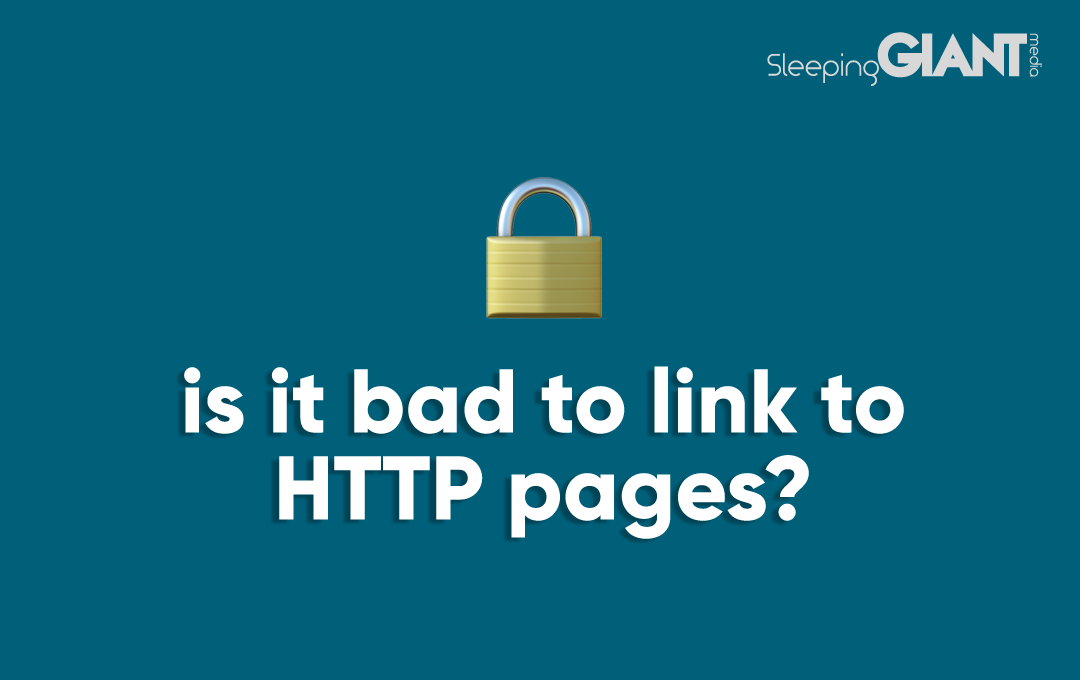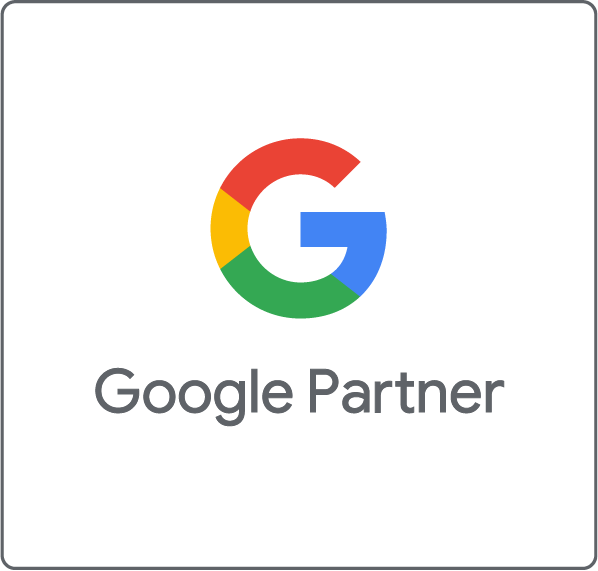
Is It Bad to Link to HTTP Pages?
As content marketers and copywriters, I’m sure we’ve all been there. You’re right in the midst of drafting up that next literary masterpiece; the words are flowing, you’ve found a great article that helps to back up your point, and now, naturally, you want to link to it so your readers can enjoy it too. At this point, you can practically taste the Pulitzer.
But wait. The unimaginable has happened. The unthinkable.
OK, maybe not quite that dramatic. But, the site you want to link to is in fact not a secure HTTPS site.
Now, should you still link to it? Will doing so make the Google Gods frown upon your site and send penalties raining down on you? Are you destined to never win a literary prize? Let’s find out.
What’s the difference between HTTP and HTTPS?
So, before we get into whether or not linking to a HTTP site is bad, first let’s talk about what a HTTP site means.
HTTP is a protocol (a hypertext transfer protocol, to be specific) for transferring data from a server to a browser – or, essentially allowing the two to communicate. The main issue with this is that because it uses hypertext structured text, the data isn’t encrypted.
HTTPS is a secure, advanced version of the same protocol, which uses an SSL or TLS to encrypt the information and create a secure connection between the server and the browser.
This added layer of security shows users that the site they’re on is protected, and that it can be trusted with sensitive information – such as credit card details or passwords.
How much does Google care about HTTPS?
In short? A lot.
In fact, back in 2014 Google released a statement explaining that, following positive results during its testing phase, it would start to use HTTPS as a ranking signal. This, it said, was part of a mission to “make the Internet safer more broadly” – outside of its own internal use of strong HTTPS encryption by default.
By announcing that HTTPS would in fact become a ranking factor, the search giant caused a wave of incentives. Businesses and website owners started to make the leap from HTTP to the more secure alternative – even though there was some initial reluctance at first. Now, 8 years later, HTTPS is pretty much seen as a given.
So, is linking to a HTTP site going to put you in Google’s bad books?
If secure web pages are important to Google, then it makes sense to assume that only linking to secure web pages would be important to Google, too. However, that’s not quite the case.
In fact, Google’s Search Advocate, John Mueller, surprised the marketing world when he gave an interesting answer during a Q&A to a question around whether sites linking to HTTP pages would experience any drop in SEO results.
The answer is no. According to Mueller, “there’s nothing against linking to sites like these” from Google’s point of view.
However, that doesn’t mean you should just go throwing links out to suspect sites willy-nilly. There is more to the conundrum than Google coming out and saying “do as you please”.
Technology has moved on since 2014, and the dark side of the Internet has too. New forms of attacks and cybercrimes emerge pretty much every day, which makes creating a safe environment for consumers online even more essential.
As marketers or SEO professionals, we have the power in our hands to decide where our audience heads next – through something as simple as where we externally link out to. So, if we can help point them in the direction of a safe, secure HTTPS site, then we probably should, right?
While there may not always be an option, if you can browse around and find similar content or studies on different sites that do boast HTTPS security, then that’s a better experience for the user. Even if Google won’t give you a slap on the wrist regardless.
One top tip from our Senior SEO Lead, Kelly Sheppard, is to make sure you do a little bit of research into the site you want to link to:
“While the HTTP status of an external site is out of your control, you do have a few options.
Don’t forget to manually check whether there is in fact a HTTPS version of the site you’re trying to link to – not all sites have the HTTP to HTTPS redirect set up correctly, so you might get lucky!”
So – to link, or not to link?
Bottom line? According to the Big G itself, there is no outwardly visible connection between linking to pages that use the HTTP protocol and seeing a negative impact on your SEO rankings.. Google will not penalise you for such actions.
But at the heart of any great modern SEO strategy should be the user. The user’s experience on your site, and the way they engage and interact with your content, has a huge role to play in the overall success of your presence online. So, if you can keep them feeling safe, and focus on sending them out to trusted resources, then that would be our best advice.
Here’s a link to our secure blog if you fancy a read on other digital topics! Or, for help with your site strategy (be it changing to HTTPS or otherwise), get in touch.
Blog
Everything you Need to Know About the March Core Update
We knew it wouldn’t be long before Google released their first core update of...
Giant Wednesday
How To Optimise Images For Websites
Digital Marketing, technology & business insights, how-to's and explainer...
Follow Us
Sign Up For More
Stay up to date with the latest happenings, learnings, events & more with our GIANT Newsletters.
Contact Us
Top Floor, The Civic Centre, Castle Hill Avenue, Folkestone CT20 2QY.
Copyright © 2022 Sleeping Giant Media. All Rights Reserved.




